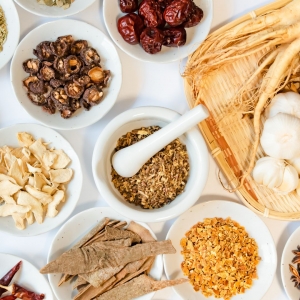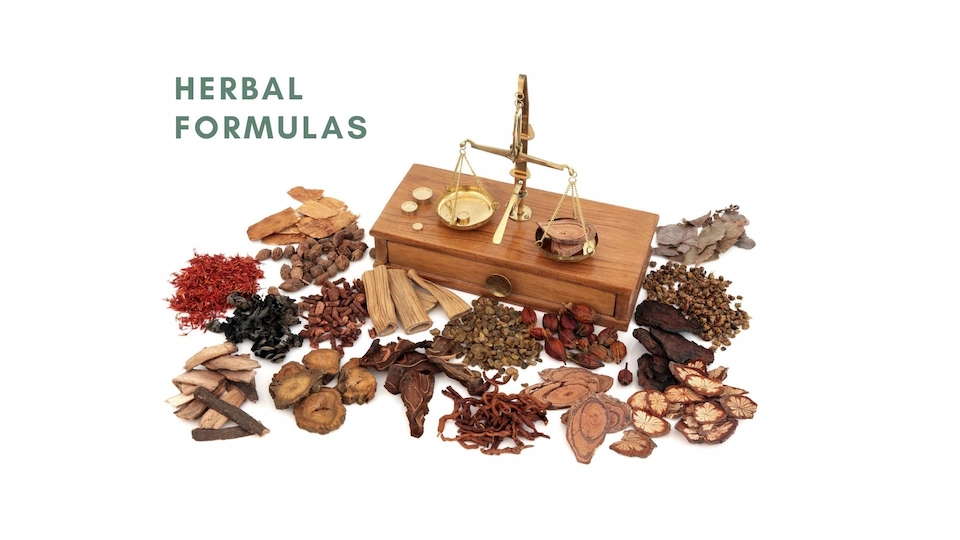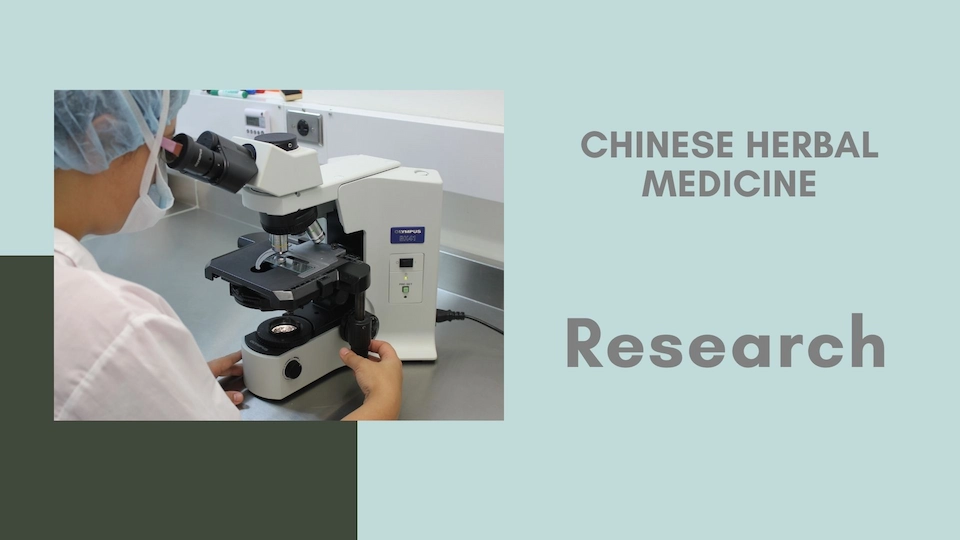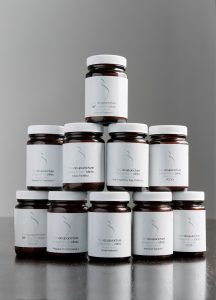Can Chinese Herbal Medicine Support Fertility and IVF?
Navigating fertility treatment can feel like entering a world filled with information, opinions, and unknowns. If you’re considering Chinese herbal medicine alongside your IVF or fertility care, you’re not alone. Many people are curious about how these traditional formulas might fit into a modern fertility plan—and what the research actually says.
Let’s explore the evidence, the potential mechanisms, and the way Chinese herbal medicine is used in clinical fertility practice.
What Is Chinese Herbal Medicine?
Chinese herbal medicine (CHM) is a core part of Traditional Chinese Medicine (TCM), a holistic healthcare system used for thousands of years. CHM involves custom-prescribed combinations of herbs that are selected based on your specific reproductive pattern, symptoms, and stage of your fertility journey. Unlike pharmaceuticals, these formulas are traditionally used to influence the body’s internal balance—what TCM calls the harmony of Yin, Yang, Qi, and Blood.

Importantly, CHM is not used to “replace” Western medical fertility treatments like IVF but may be used as a supportive therapy to optimise cycle health and wellbeing when guided by a qualified practitioner.
How Do These Formulas Work?
Let’s look at two commonly used and well-studied formulas: Si Wu Tang (Four Substances Decoction) and Liu Wei Di Huang Wan (Six Ingredient Pill with Rehmannia).

Si Wu Tang (Four Substances Decoction)
One of the oldest and most commonly used formulas in Chinese gynaecology, Si Wu Tang has been used for over 1,000 years to nourish Blood, regulate menstruation, and support women’s reproductive function. It’s often prescribed during the follicular phase of the cycle, particularly for those with signs of Blood deficiency such as light periods, pale complexion, or fatigue.
Modern research has started to explore why this formula may be helpful.
In a 2021 preclinical study by Zhou et al., Si Wu Tang was shown to significantly improve ovarian function in a mouse model of Premature Ovarian Failure. The study found the following:
- Follicular development improved significantly in treated mice
- Oxidative stress levels were reduced—an important finding as oxidative stress is known to negatively affect egg quality
- Angiogenesis (formation of new blood vessels) was enhanced in ovarian tissue, improving blood supply to follicles
- Pregnancy rates increased in treated mice
- Offspring showed protection from developmental damage when mothers were exposed to environmental toxins
The regenerative potential of SWT was linked to its key chemical components:
- Gallic acid – antioxidant, reduces oxidative stress in ovarian cells
- Ferulic acid – supports microvascular circulation and blood flow
- Paeoniflorin (from Paeonia lactiflora) – may prevent apoptosis (programmed cell death) of granulosa cells, supporting hormone production and follicle maturation
Together, these actions suggest that Si Wu Tang may help create a healthier ovarian microenvironment, particularly during the egg development phase.
It’s important to note that this study was conducted on mice, not humans. More research is needed to determine whether these effects translate directly to people undergoing IVF.
Liu Wei Di Huang Wan (Six Ingredient Pill with Rehmannia)
Liu Wei Di Huang Wan (LWDHW) is another foundational formula in TCM, often used to nourish Kidney Yin—a concept in TCM linked with reproductive reserve, hormonal balance, and ageing processes. It is commonly used in people with signs such as night sweats, low back pain, irregular cycles, or early menopause.
In a 2014 randomised controlled trial, women undergoing IVF who had signs of Kidney Yin deficiency were given LWDHW prior to embryo transfer. The study reported:
- Higher quality of oocytes and embryos
- Increased clinical pregnancy rates
- Changes in the proteome (protein expression) of follicular fluid, which is believed to influence the microenvironment surrounding the egg
These results suggest that LWDHW may support fertility by improving the biochemical environment in which eggs mature, potentially leading to better embryo quality.
Again, this research is early-stage and focused on specific TCM patterns, but it provides a valuable starting point for future clinical studies.
Combined Approach: Si Wu Tang + Liu Wei Di Huang Wan
At The Acupuncture Pregnancy Clinic, our “Prepare to Conceive” herbal protocols are often based on a modified combination of Si Wu Tang and Liu Wei Di Huang Wan. This pairing supports both the nourishment of Blood (for follicle and endometrial development) and Kidney Yin (for hormonal balance and ovarian function).
This blend is not used for everyone—it is carefully prescribed after a thorough consultation, and is adapted based on:
- IVF timing (e.g. stimulation, retrieval, or transfer)
- Menstrual cycle phase
- TCM diagnostic signs
- History of miscarriage, endometriosis, or hormonal imbalance
We pause or adjust herbal treatment during stimulation and luteal phases when needed, and we collaborate closely with IVF specialists and endocrinologists where appropriate.
What Else Does the Research Say?

A broader look at Chinese herbal medicine and fertility offers even more compelling data.
- Ried (2015) conducted a meta-analysis of 13 trials (n=4,247 women) and found that those receiving CHM had a 1.74x higher chance of clinical pregnancy than those using Western medicine alone (60% vs 33%).
- Kwon et al. (2020) reviewed 43 RCTs and found CHM was more likely to increase live birth and clinical pregnancy rates. Only mild adverse effects were reported in a small subset of trials.
These outcomes must be interpreted with care. Most studies have methodological limitations, varied formulas, and rely on specific TCM diagnostic categories. Still, they open a valuable conversation about how integrative care can enhance outcomes in IVF. For example
Kwon et al. (2020) study looked at timing of herbal medicine including taking herbal medicine in IVF stimulation phase and found no increase in Ovarian Hyperstimulation (OHSS) and improved IVF outcomes. While previously herbs were seen to be inappropriate during stimulation phase, this research suggest in some circumstances it may be of benefit.
Should You Use Chinese Herbs During IVF?
Herbs are not suitable for everyone during every phase of an IVF cycle. Their use requires careful timing and coordination with your fertility plan.

Chinese herbal medicine may be considered during:
- Preconception (3+ months before IVF): to support general reproductive health
- Cycle preparation: to improve follicular or luteal phase balance
- Post-cycle recovery: following unsuccessful rounds, miscarriage, or poor embryo quality
At our clinic, we focus on tailoring treatment to your unique reproductive picture, adjusting as your cycle progresses.
Final Thoughts
If you’re exploring IVF or struggling with repeated cycles, Chinese herbal medicine may offer additional support—when used appropriately and with professional guidance.
At The Acupuncture Pregnancy Clinic, we’ve supported thousands of patients since 2008 with individualised fertility care. Our team of AHPRA-registered, degree-qualified practitioners uses evidence-informed protocols to support you through each step of your journey.
We’re here to listen. To guide. To support you as you take back control of your fertility story.
Find a clinic near you: Alexandria, Sydney CBD, Westmead, Gosford, East Melbourne, Mornington
Book an initial consult or contact us with questions.
References
- Zhou, F., et al. (2021). Journal of Ethnopharmacology, 280, 114431.
- Lian, F., et al. (2014). Chinese Journal of Integrative Medicine, 20(7), 503–509.
- Ried, R. (2015). Complementary Therapies in Medicine, 23(1), 116–128.
- Kwon, C. Y., et al. (2020). Complementary Therapies in Medicine, 53, 102528.
- Xia, J., et al. (2018). Journal of Integrative Medicine, 16(2), 90–95.
Author

Amy Forth
Amy Forth is Managing Director of the Acupuncture Pregnancy Clinic, a clinic that is an industry leader in evidence-based Integrative Traditional Chinese Medicine focusing on reproductive health, women‘s Health, and Pregnancy care. Amy is renowned in Chinese Medicine as an influential practitioner, educator, and researcher focusing on IVF support, fertility, and women’s health. Amy has been in practice since 2008, and is known for her warm, compassionate and evidence-based approach.
